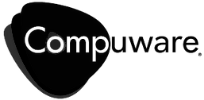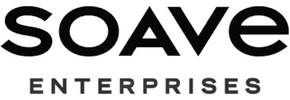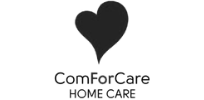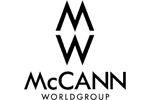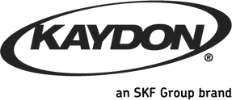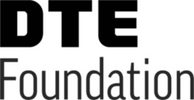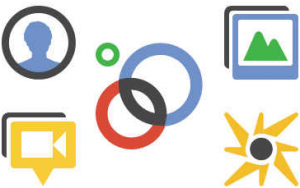
I think it is fair to say that Google Plus Project, otherwise known as G+, has exploded onto the web marketing scene in a very short time. Statistics around the web indicate that in the first week, 35% of all new links shared on Twitter were related to the G+ Project.
At first glance everyone seemed to be declaring that the Google G+ Project would be the end of Facebook, Twitter, Linkedin and Skype. I cannot imagine that G+ would have the ability to knock these behemoths down. Certainly not in the short term and long term the other communities fulfill other needs that G+ will not be able to. What I do believe the critics are missing is the effect on web marketing. Perhaps these critics are not web marketers, but more likely either seeking attention through competitive propaganda or have an inability to adopt and adapt to new changes within the Internet industry.
Certainly Google’s G+ Project will eventually change the web marketing world. Since this is Google’s own product, they will prefer social tick marks through the +1 Button over those coming from Twitter, Facebook and social bookmarking. You cannot help but see that this will impact organic search results. Web pages that generate many +1’s will probably populate earlier on Google search results than those websites that do not.
I will avoid detailed discussions related to the features offered through the Google G+ Project in this discussion, which include sharing Photos, Chatting, Hangout, Spark, Huddles, and Instant Uploads. As a web marketer, all of these other features are social community add-ons that mimic the likes of GoToMeeting, Skype, Flickr and others. None of these will necessarily affect web marketing in terms of search results; only make more features available for Google to allow for Adwords advertising on Google web properties versus on the Google Ad Network.
What Is The Need for Google Plus Project?
First and foremost, if we go back many years when Google got it’s start, part of their objective was to be the world’s information source. To that end, any information including communications, are fair game to be pooled under one roof for better accessing, interpretation and availability based on content relevancy. Information from social communities certainly falls into the process of aggregating information and in line with Google’s objectives.
Secondly, a few years ago if you logged into your Google account, you had the option of commenting on web pages in search results. I think it took one comment to realize that nothing we did would have an effect on website rankings, because the comments were only relative for our own account. Now why would I comment on web pages if my comments are not shared with anyone? Exactly! So, the comment we had on our own website is no longer there and the Google Plus Project seems to have replaced this feature more effectively. Now, all comments, ticks, etc. are shared with people in our community. Certainly seems to be more effective for web marketing.
Perhaps not the last reason, but certainly another important reason, would be related to anti-spam. Google has always sought out ways to reduce spam in the search results. So much so, that it has made it more difficult and complicated for businesses to rank legitimate information and websites (this is also known as job security for web marketers!).
Spammers have infiltrated social communities and found ways to get their information indexed through these communities and/or impacted search engine results for their websites. Since most popular social communities are not as good as Google in terms of anti-spam, one would expect Google to take a pro-active role. Content in the project can be better monitored (aka controlled) to minimize spam, fraud and less reputable websites.
G+ and Web Marketing
The +1 button is available through web search results now and also through other social communities, blogs, etc. A Google +1 button plugin is available for WordPress blogs and eventually, this will be as wide spread as other sharing tools for Twitter, Facebook, Delicious, etc.
Since these “social activities” are taking place on Google, it is hard to imagine that the number of +1 button clicks a given page gets would not have an effect on the organic rankings! Not only is the +1 button included on every post within Google Plus and on content publishers’ websites, but it’s literally sitting next to every single search result that Google returns. Does anyone doubt that this will affect search engine ranking position (SERP) results?!
It would be similar to doubting that star ratings on local business listings won’t affect search engine results that come through the local business listings. Let’s get realistic. As of November 2010, Google was able to marry a website with a local business listing and display average star ratings for a website based on the results in the local business listing. Star ratings are quantitative and therefore mathematical! Still don’t believe this will affect SERP?
If we believe that the number of +1 clicks will affect SERP and also display accordingly to content relevancy to my G+ community, then the more people in my community, the more people I can effect with +1 clicks.
Yes, I realize if we were to hire a bunch of people from a third world nation for 50 cents per hour clicking away at our client or our own websites, we could affect SERP, but let’s move away from that thought for a moment because that loop hole could get closed very quickly based on geographic IP addressing.
However, it does mean that the more people you have in your G+ community, the more people you can impact. Rather than thinking about third world nations clicking away, think about indiscriminately creating the largest community you can possibly think of using– every community you already belong to, every email address you have, every connection you can get your hands on. Now that may have a much bigger impact for anything you +1!
Early Adoption and Adapting To Change
Once again, the Internet shows how quickly a technology can enter the market and how rapidly people will migrate to it. Early adoption is the name of the game in the world of Internet technologies. Adapting to the changes in the industry is a must and everyone else will be left behind. If the past 20 years has not shown us that businesses need to jump on board sooner rather than later, then you will undoubtedly be left behind.
The G+ user population will grow extremely fast, given the interest, Google’s reach and resources, and the need businesses have for their website’s SERP. Perhaps this will become the “Facebook for Business”!
It will be interesting to learn how well businesses will be able to keep up with all of the changes, given the growing “to do” list. G+ on the short term will add a host of additional “to do’s” and the number of marketing outlets to manage. G+ will also be too important to ignore.
Article Contact
Melih Oztalay, CEO
SmartFinds Marketing
Direct: (248) 568.2241
melih@SmartFindsmarketing.com
330 East Maple Road #503, Birmingham, MI 48009
http://www.SmartFindsmarketing.com




